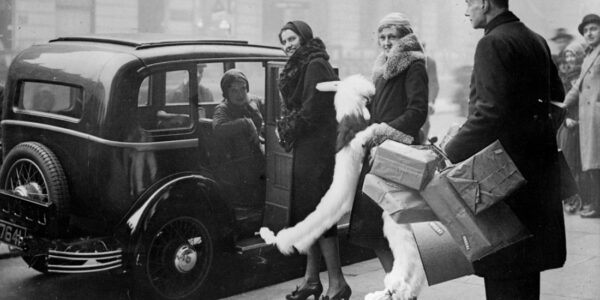 We see that red pencil in your hand, censorious reader, poised to come down hard on some admittedly unorthodox grammar in this week’s headline. But let’s not be hasty, shall we? There’s a perfectly good reason why this age-old morsel of wisdom has come down to us in rough and tumble form: It’s straight from the mouths of the sort of people who didn’t already have, and so never got. What our little apothegm lacks in polish, it makes up for in punch — and lands one square on the chin.
We see that red pencil in your hand, censorious reader, poised to come down hard on some admittedly unorthodox grammar in this week’s headline. But let’s not be hasty, shall we? There’s a perfectly good reason why this age-old morsel of wisdom has come down to us in rough and tumble form: It’s straight from the mouths of the sort of people who didn’t already have, and so never got. What our little apothegm lacks in polish, it makes up for in punch — and lands one square on the chin.
The idea that a privileged caste perpetuates itself by gobbling up opportunity and advantage that might otherwise be distributed more widely and evenly has (you may not be surprised to learn) an interesting analogue in the world of wine, where vineyards are anything but a level playing field.
In our analogy, possessing a plot of ground with a historic reputation for making wine of elite or even merely higher-than-average-quality wine is the equivalent of having what’s called old money — the kind that provides a backstop against failure and a permanent leg up on competition posed by ordinary folk. This is true even if one’s skill (or the conscientious application of one’s skill) as a winemaker is only marginal. In places like Burgundy, where the prestige grand cru and premier cru designations may attach to a large vineyard with many owning a row or two, or in Champagne, where cru rank attaches to an entire township, you can be a very mediocre winemaker indeed and still enjoy the higher prices that come with cru status. You has. You gets.
The system that put all this in place is an ancient one, and, at the beginning, it may have had the look of what we might call a pure meritocracy of site, but I’m not at all sure we can still describe it this way. The reason is simple: capital.
When the kind of revenue prestige sites generate is at one’s disposal, and one is keen on keeping up appearances, then all manner of enhancements become tantalizingly possible. You’re free to chase the latest fashion in luxury tastes, work with better equipment, skim the cream of enology school graduates, and, of course, see that your PR department keeps busy polishing your brand’s brasswork. I won’t even mention unseemly technological interventions intended to tone and revitalize (as they say in the cosmetics biz) that will be within reach of your bank account. Yes, I think I’ll leave it there.
All this prompts speculation about how wines from prestige sites might fare against those of nondescript origin if such were subjected to an identical upbringing. We long ago learned that people from the humblest backgrounds are the equals of children of privilege when given access to similar resources. Maybe it’s time we started thinking the same way about wine.